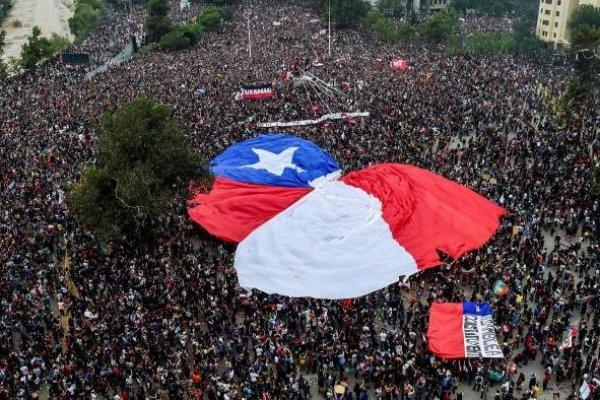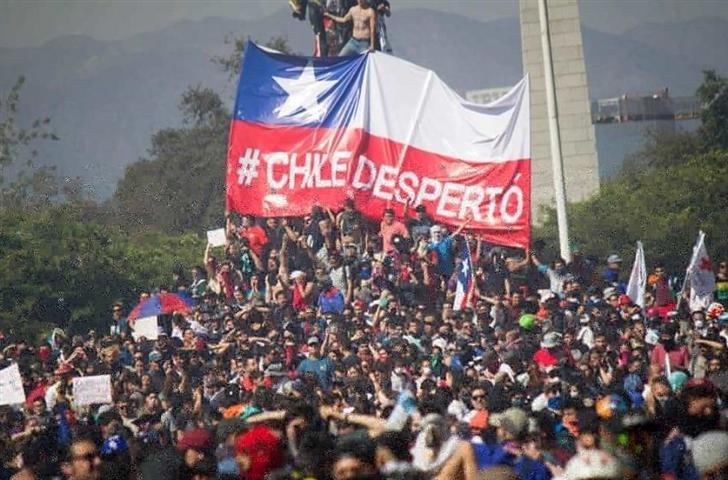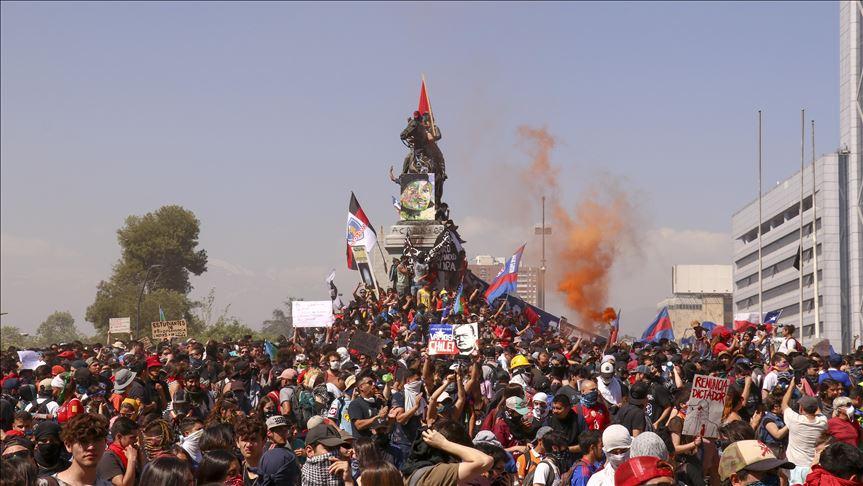A movement, driven by students, to fight a rise in the subway fare began in Santiago on October 18, 2019, which subsequently spread nationwide and demonstrated the population’s dissatisfaction with neoliberalism.

The October riots were repressed by Chile’s militarized national police, known as Carabineros, and military forces, resulting in nearly 30 deaths, thousands of wounded, and 460 people with eye injuries due to the firing of pellets or tear gas bombs.
An annual human rights report by the Diego Portales University indicates that only 75 of 8,593 cases filed against State agents up to April 2022 were formalized.
Among the latter are 35 for unlawful coercion, five for serious injuries, 18 for unjust harassment, and six for torture.

The protests, considered the largest since the end of the dictatorship in 1990, paved the way to start a constituent process but a proposed Constitution drafted by elected delegates of the Constituent Assembly was rejected in the September 4 referendum.
This is the first outbreak commemoration under the Government of President Gabriel Boric, a former student leader who participated in the signing of the Agreement for Social Peace that initiated the constituent process.
pgh/iff/jha/car










